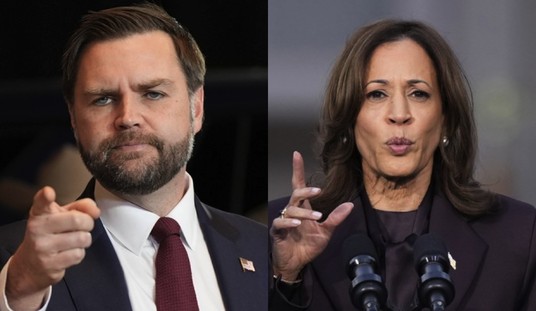Brian Beutler of Salon is generally regarded by progressives as one of the smartest people in their movement, and his work is often cited with solemn nods of approval by others on the Left. So, when he writes a widely-cited article purporting to reveal a secret and diabolical Republican plot – breathlessly titled, “Republicans have a secret Obamacare strategy – and it’s based on deception” – it’s instructive to consider the political basis of this thesis.
I advise you to not be drinking anything when we get to his reasoning.
Beutler argues that Republicans are going to make gains in this year’s election no matter what happens, and are deviously going around campaigning against Obamacare to make it seem as if the voters are unhappy with Obamacare, when really they are just peachy keen on it! I will leave aside, as Beutler does not mention them, the polls that have shown that the voters disapprove of Obamacare (spoiler: virtually every poll taken for the past five years), and quote Beutler’s poll analysis in its entirety:
I bring this up in light of a new Washington Post/ABC News poll, which finds that in spite of the GOP’s abiding unyielding infatuation with Obamacare, the law is actually a political wash, at least to first approximation.
Here’s Greg Sargent on the numbers: “barely more than a third (36 percent) say support for Obamacare would make it less likely they vote for a candidate, versus 34 percent who say ‘more likely.’ This is overwhelmingly driven by Republicans: 70 percent of them say ‘less likely,’ while only 35 percent of independents say the same, and moderates say they’d be marginally more likely by 35-31.”
So here we are, eight months out from the midterms, with control of the Senate on the line, and the GOP is orienting its entire campaign around an issue that – again, to first approximation – confers them no net benefit. Why the hell would they do that?
A few reasons. One obvious reason is that they’ve worked their voters into such a lather over Obamacare that they can’t just quietly sideline it, particularly now that it’s actually being implemented. Then there are related, second-order effects. If Obama creates an intensity gap between Democrats and Republicans, then the issue obviously advantages the latter. Having worked their voters into said lather, Obamacare is precisely the kind of issue that will drive them to the polls in November – especially if they’ve been deceived into thinking that Obamacare can be repealed.
So, you know, it’s a political wash…except with the people who actually vote, and except that it is the issue that will motivate them to actually vote.
But you know, besides that. Because who ever heard of voter turnout affecting an election?

If you actually dive into the one poll under discussion, it gets worse for Beutler’s and Sargent’s theory. Because that 34-36 number is all adults, and as we all know, all adults don’t vote; registered voters vote (and not all of them, either, but eight months from an election it’s hard to project who the likely voters are, because…oh, sorry, I’m discussing what motivates voter turnout again. How unsporting of me.)
When you flip the tab to registered voters, the +/- on Obamacare deteriorates to 33/40, seven points underwater. A 40/33 issue isn’t an 80/20 issue, but it’s certainly one I’d feel comfortable running on.
Then you hit the breakdowns by group, bearing in mind that these appear to be subsets of adults, rather than subsets of registered or likely voters. As noted, Obamacare is 11/70 with Republicans and 30/35 with independents. It’s 34/40 in the Midwest, which is chock full of purple states that have Senate and House races this year. And then you get to the people the Democrats would presumably bank on, and you see significant weakness. Obamacare is 57/12 with Democrats and 45/18 with moderate or conservative Democrats – that’s a lot of Democrats to be unhappy enough with the party’s signature domestic policy that they say it would negatively impact their vote. Losing almost 1 in 5 self-identified moderate or conservative Democrats on Election Day, whether they switch sides or more likely stay home, would be a bloodbath when they are already going to lose independents.
How about non-white voters? 44/18. That’s right, among non-white respondents to the WaPo poll who said Obamacare would affect their vote, more than a quarter would be less likely to vote for a pro-Obamacare candidate – nearly a fifth of all non-white voters. Among Hispanics, it’s 42/19. If I’m a Democratic strategist counting on these groups as core base voters, those are chilling numbers. (And note that the number for liberal Democrats is 75-1. Which suggests to me that most of the non-white respondents to this poll did not self-identify as liberal Democrats, an interesting finding in itself).
All of this is only one poll, of course, but since it’s the entire basis for Beutler’s argument, it gives you a sense of how much straw-grasping is really involved here. If you can convince yourself that voter turnout doesn’t matter, and that Democrats didn’t really suffer in 2010 from their Obamacare votes, I guess you can convince yourself of almost anything.













Join the conversation as a VIP Member